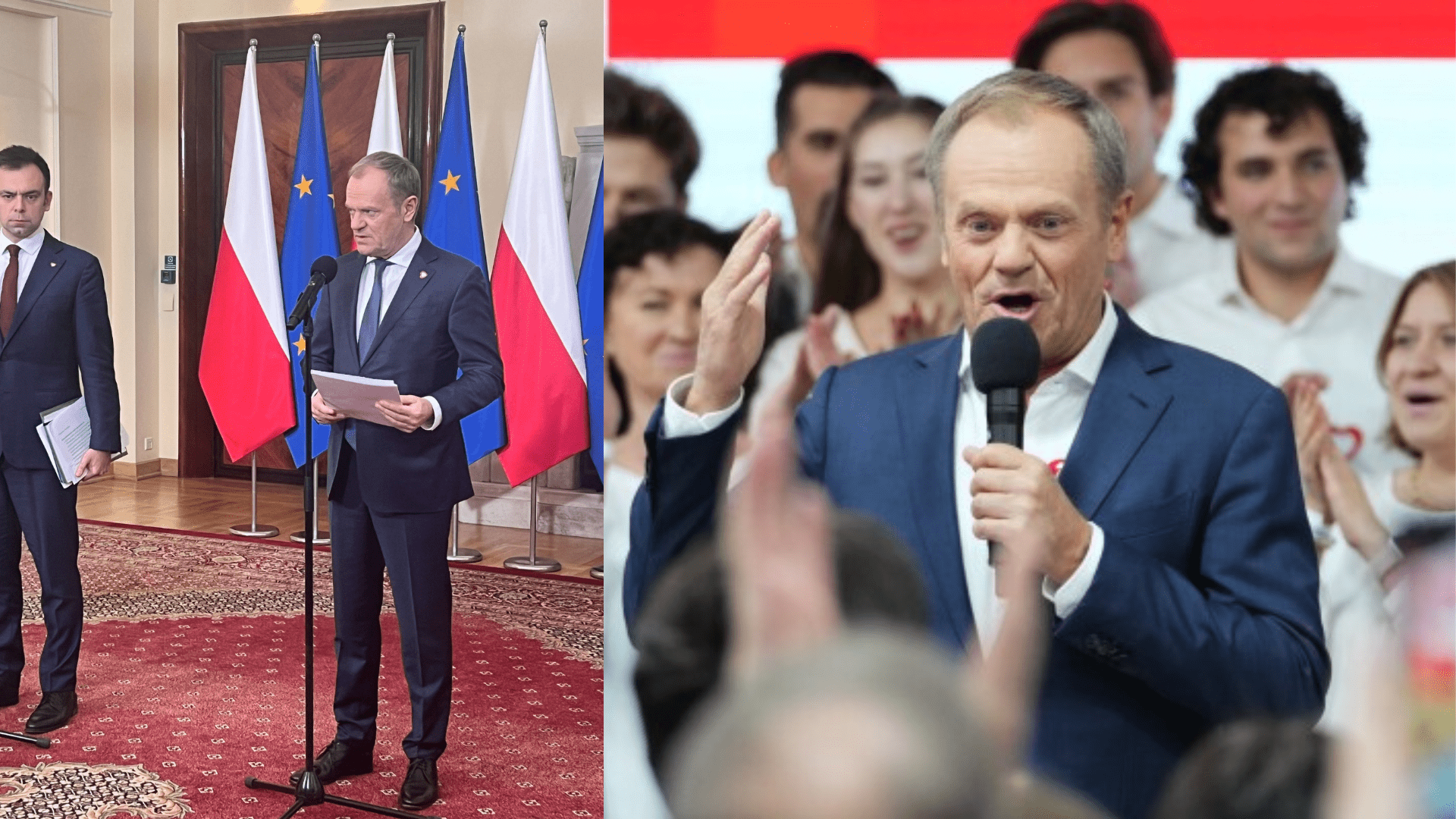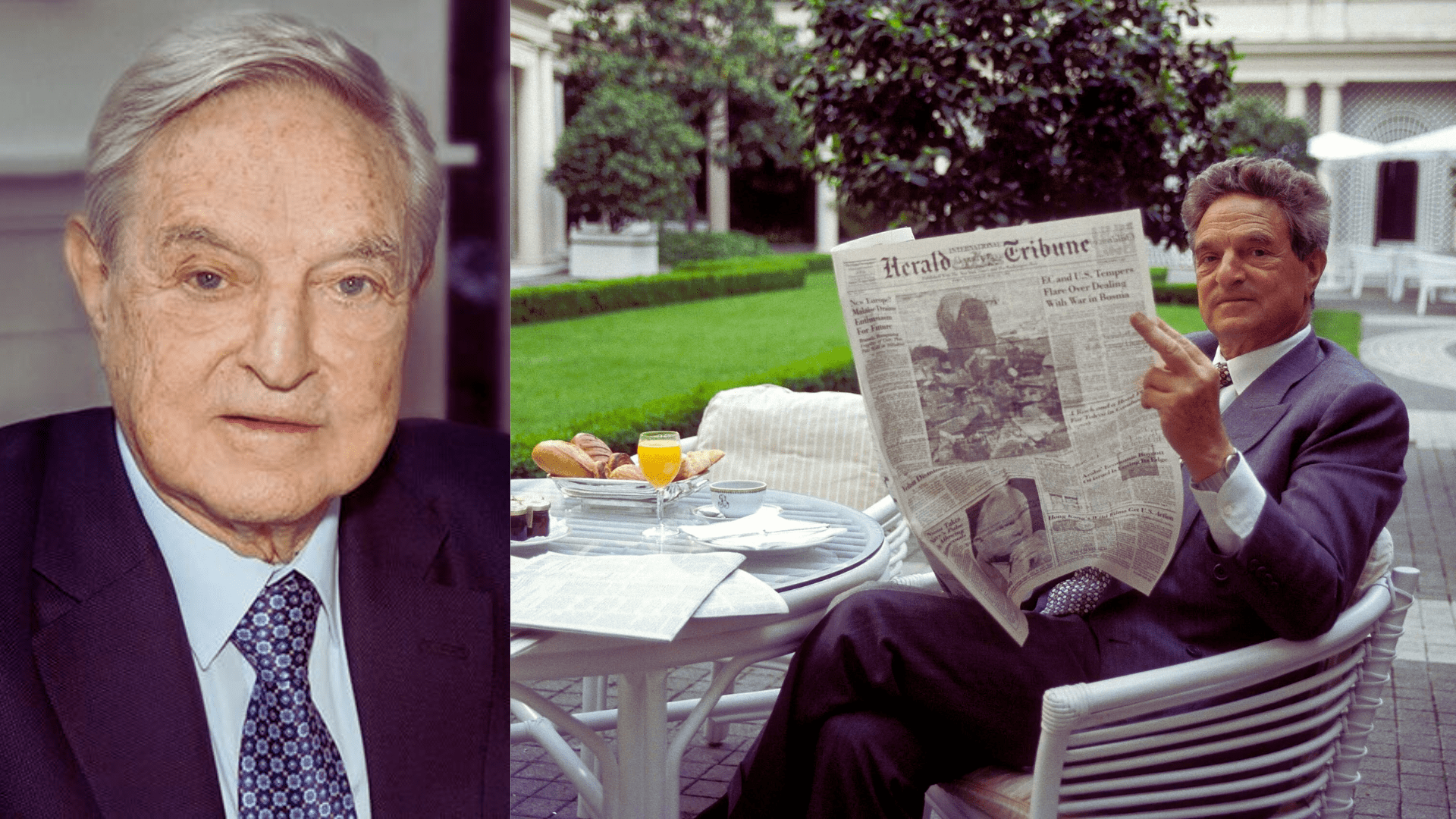In December 2023, Donald Tusk became the new Prime Minister of Poland, marking a significant shift in the country’s political landscape. His government was sworn in by the president, concluding a transfer of power that ended eight years of nationalist rule in Poland. Tusk, leading the centrist Civic Coalition, was elected Prime Minister by the Polish parliament on December 11, 2023. His appointment and the inauguration of his Cabinet on December 13 represent a pro-European Union stance and the culmination of a political change in Poland.
Background
Political Landscape
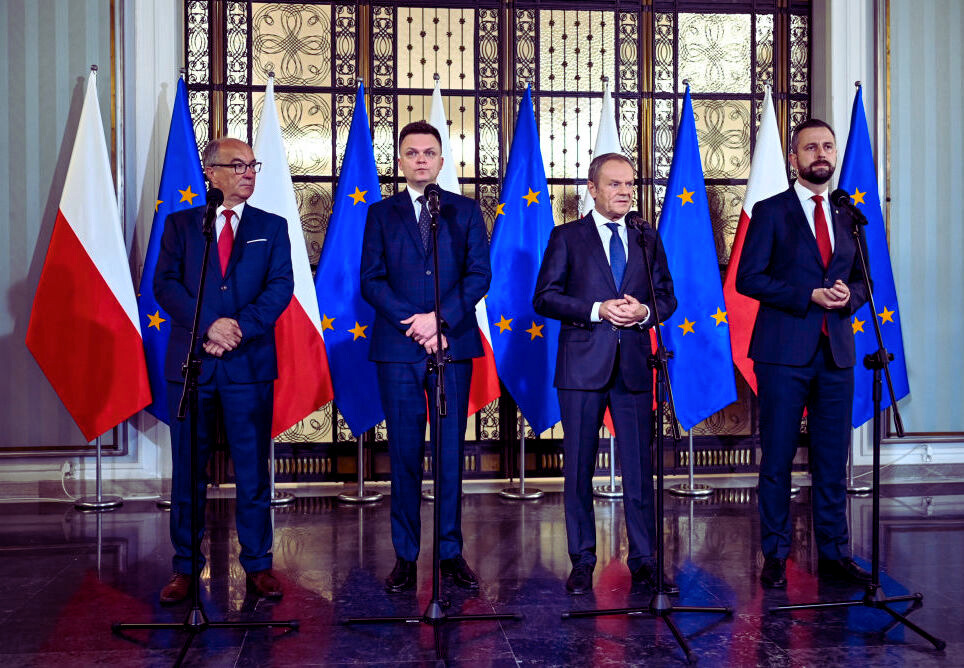
The political landscape of Poland saw a significant shift in December 2023 with the appointment of Donald Tusk as the new Prime Minister. This marked the end of eight years of conservative rule in the country. Tusk’s government, representing the pro-European Union centrist Civic Coalition, was sworn in by the president after being elected by the Polish parliament on December 11, 2023. This transition indicates a pivotal change in Poland’s direction towards a more pro-EU stance, ending a period of nationalist governance. Donald Tusk’s leadership is expected to influence not only domestic policies but also Poland’s relationship with the European Union and its position on the European political scene.
The Election Lead-Up
The lead-up to the 2023 Polish parliamentary election culminated in the election of Donald Tusk as Prime Minister, nearly two months after a national election won by a coalition of pro-EU parties. This election marked a significant shift in Poland’s political landscape, with the centrist Civic Coalition, led by Donald Tusk, coming into power after eight years of conservative rule. The election of Tusk and his pro-EU stance indicated a change in direction for Poland, moving away from the nationalist policies of the previous government. The parliamentary support for Tusk not only ended the conservative reign but also set the stage for a new era in Polish politics, focusing on re-aligning with European Union principles and potentially changing domestic and international policies reflecting a centrist, pro-European Union orientation.
The New Prime Minister
Early Life
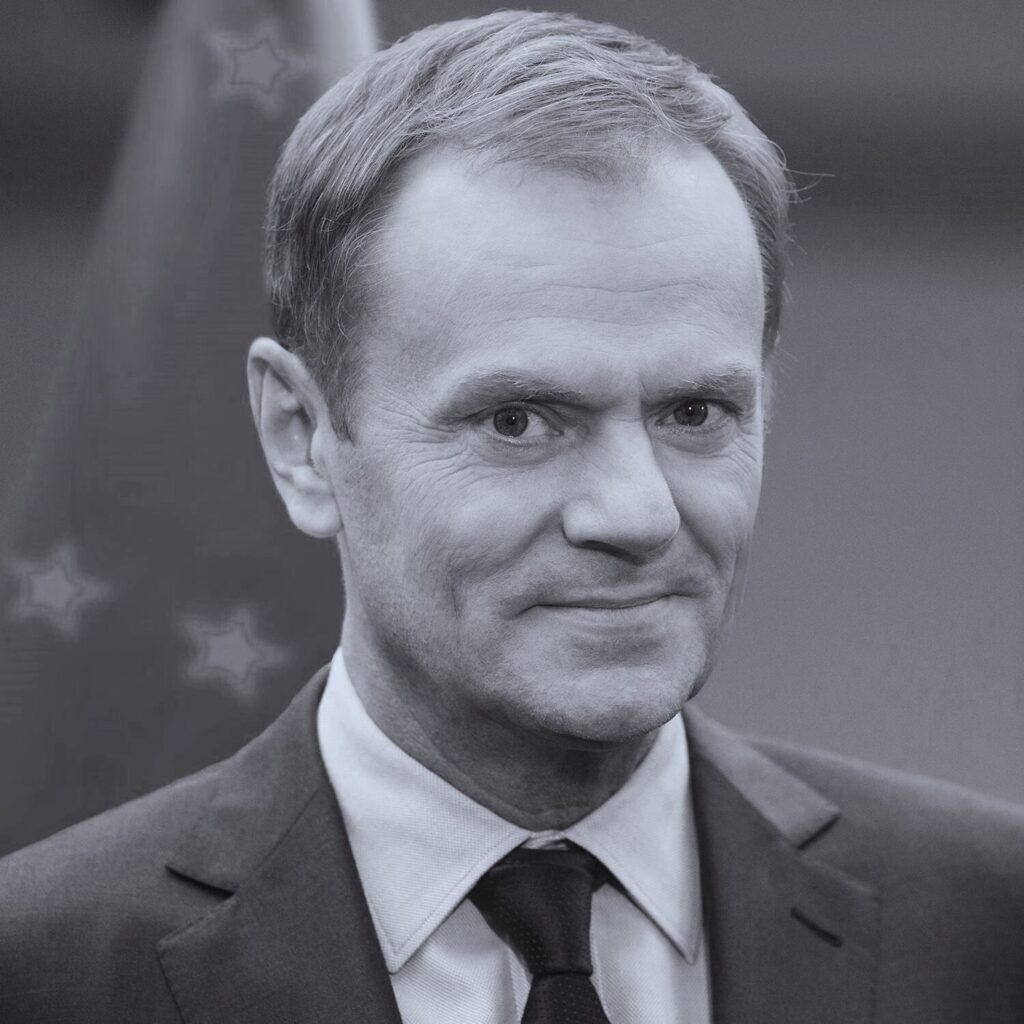
Donald Tusk was born on April 22, 1957, in Gdańsk, Poland. His early life was marked by a modest upbringing; his father worked as a carpenter on the railway, and his mother was employed as a secretary at a hospital. During the challenging times of martial law in Poland in 1981, Tusk found employment as a chimney painter and co-founded a cooperative, leveraging one of the limited opportunities for private enterprise available in the communist regime at the time. This period played a significant role in shaping Tusk’s resilience and work ethic, which would later influence his political career and leadership style.
Political Career
Donald Tusk’s political career spans several decades, marked by significant accomplishments and leadership roles. He was the first prime minister of Poland to serve two consecutive terms from 2007 to 2014 since the fall of communism in 1989. This period was a testament to his leadership and the public’s trust in his governance. In addition to his national achievements, Tusk played a prominent role on the international stage as the President of the European Council from December 1, 2014, to November 30, 2019. His political journey also includes founding an illegal monthly titled ‘Political Review’ in 1983, advocating for economic liberalism and liberal democracy principles, highlighting his early commitment to democratic values and economic reform.
Rise Through the Ranks
Donald Tusk’s political career is marked by significant achievements and a series of strategic advancements that led him to become a prominent figure in European politics. Starting as a graduate of the University of Gdańsk with a master’s degree in history, Tusk entered the political scene with a strong educational background. His early life was shaped by humble beginnings, being the son of a carpenter, which perhaps grounded his political perspectives and ambitions.
Tusk’s journey to the top saw him becoming the Prime Minister of Poland, where he served for seven years. This tenure made him the longest-serving Prime Minister in democratic Poland and marked him as the first to be re-elected, showcasing the trust and support he garnered from the Polish electorate. His leadership in Poland was a stepping stone to higher roles within the European Union.
Key Policies and Views
Donald Tusk, upon returning as Poland’s Prime Minister, has articulated a vision emphasizing a progressive Poland deeply integrated within the European Union. His administration aims to reforge Poland’s relationship with the EU, promising to recover billions of euros in EU funds for Poland. This comes as a strategic move to not only enhance Poland’s economic standing but also to solidify its place at the heart of European integration.
Facing a nation described metaphorically as a ship that requires rebuilding while at sea, Tusk is confronted with the immense challenge of navigating through a plethora of domestic and international issues. His governance strategy is underscored by a commitment to restore Polish democracy, indicating a strong push towards reinforcing democratic institutions and practices within the country.
Moreover, Tusk’s government has confidently won a parliamentary vote, underscoring a pro-EU pathway for Poland. This aligns with his broader vision of strengthening Poland’s alliances within Europe and enhancing support for Ukraine amid regional tensions. Tusk’s return marks a significant shift from the previous eight years of conservative rule, with his centrist approach aiming to reconcile and realign Poland with European values and commitments.
The Election Results

The 2023 Polish parliamentary election took place on 15 October 2023, marking a pivotal moment in Poland’s political landscape. The election resulted in a significant shift, with a coalition of pro-European Union parties, including Donald Tusk’s Civic Platform, emerging victorious. This victory effectively ended the rule of the Law and Justice Party (PiS), which had governed since 2015.
Following the election, Donald Tusk was elected as the Prime Minister, with his government winning a vote of confidence in parliament on 12 December 2023. Tusk’s alliance secured a majority with promises to restore Polish democracy and strengthen the country’s relationship with the European Union, marking a significant policy shift from the previous administration.
The Victory
Donald Tusk’s victory in the Polish parliamentary elections marked a significant political shift, ending eight years of nationalist rule under the right-wing populist government. His election is seen as a triumph for pro-European Union sentiments within Poland, with Tusk and his coalition of pro-EU parties winning nearly two months after the national election. This victory not only signifies a change in the domestic political landscape but also indicates a potential shift in Poland’s international posture, especially in its relationship with the EU and its stance on aiding Ukraine. Tusk’s government, having won a vote of confidence in parliament, is set on a pro-EU path, aiming to strengthen Poland’s ties with the European Union and pushing for the West’s help for Ukraine.
What This Means for Poland
Donald Tusk’s return to power in Poland marks a pivotal moment for the country. As the new Prime Minister, Tusk’s victory signals a shift away from the nationalist rule of the past eight years. His pro-European Union stance and commitment to restoring key democratic institutions suggest a renewed focus on Poland’s engagement with the EU. Tusk’s warning about the possibility of a snap election if his budget faces opposition adds an element of political tension, highlighting the challenges he may encounter in implementing his agenda. Expectations are high as the Tusk government takes charge, aiming to return Poland to the EU mainstream and reduce external influences, especially from Washington. The dynamics of Tusk’s leadership will likely shape Poland’s domestic and international policies in the coming years.
Domestic Policy
Donald Tusk’s return as Prime Minister of Poland signifies a significant shift in the country’s domestic policy landscape. Tusk’s priorities include restoring the rule of law after years of political interference in major judicial institutions by the previous government. Additionally, Tusk has expressed a commitment to introducing same-sex civil partnerships, a move that represents a radical change from Poland’s previously conservative stance on LGBTQ+ rights. However, Tusk’s government will face challenges in implementing these changes due to the necessity to cohabit with President Andrzej Duda for the next two years, potentially slowing down domestic reforms. Moreover, Tusk has taken steps to address the row over the domestic violence treaty, indicating an approach to governance that seeks to reconcile and address contentious issues head-on.
Foreign Policy
Donald Tusk’s foreign policy as the Prime Minister of Poland is poised to address several key areas. Firstly, Tusk’s approach seeks to mend and strengthen alliances, particularly with Ukraine, as evidenced by a mutual pledge to quickly resolve political disputes to bolster their critical wartime alliance. This move underscores Poland’s commitment to regional security and stability. Furthermore, Tusk’s pro-European integration stance signals a potential shift towards more cohesive engagement within the European Union, especially in light of the challenges posed by rising populism. His leadership is expected to navigate Poland through a landscape marked by geopolitical tensions and the need for strong alliances within and beyond Europe. Tusk’s prior emphasis on improving relations with key EU nations during his earlier tenure further indicates a likely continuation of efforts to fortify Poland’s position within the EU framework.
Challenges Ahead
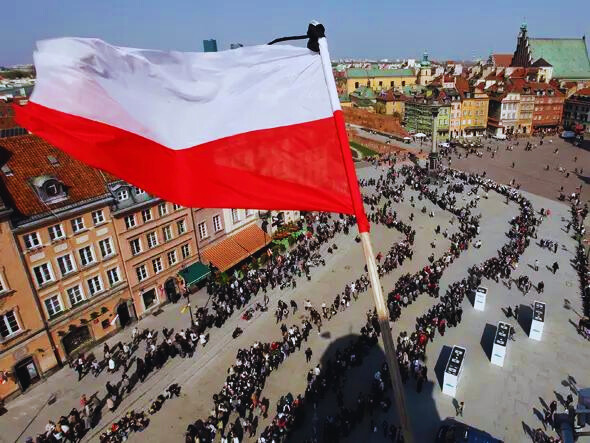
Poland faces multiple challenges following the recent elections. The economy experienced erratic growth from mid-2022 to mid-2023, leading to a recession at the start of this period. The country also grapples with obstacles stemming from the policies of the outgoing government and a worsening economic situation, highlighting the need for a rule-of-law correction amidst serious economic challenges. Fiscal challenges are expected to extend beyond the 2023 elections, impacting the speed at which the country can recover. Despite political turmoil, the government believes the 2024 budget will not be affected. The elections signified a shift towards recommitting to EU values and democratic principles, indicating a democratic resurgence. The country’s primary focus will be addressing these economic and political challenges while meeting key expectations in the post-election landscape.
Economy
Poland’s economy faces challenges as the new government, led by Prime Minister Donald Tusk, inherits a troubled budget legacy from the outgoing nationalist government. The nationalists’ last-minute spending since their mid-October election defeat has exacerbated budget strains. Tusk has warned of the possibility of a snap election if President Duda blocks his budget proposals, highlighting the political tension surrounding economic reforms. The new government aims to trim election pledges to manage a high deficit expected in 2024, operating under a budget based on a legacy draft. Amidst these challenges, Tusk’s administration is aggressively reversing years of illiberal rule, leading to a constitutional mess and uncertainties in economic policies. Additionally, Poland’s path to adopting the euro is anticipated to be long and arduous, with significant economic and monetary reforms required.
International Relations
Donald Tusk’s return as Poland’s Prime Minister is poised to significantly impact European integration and Poland’s international relations. Tusk aims to thaw the frosty relations between Poland and the European Union, marking a departure from the previous government’s contentious stance towards the EU. This shift is expected to align Poland more closely with EU policies and objectives, reinforcing EU integration efforts, especially in Central and Eastern Europe. Additionally, Tusk’s government plans to focus on restoring the rule of law in Poland and unlocking significant EU funds, which could further bolster Poland’s role within the EU framework. His leadership is also anticipated to reduce Washington’s influence in Poland, signaling a potential shift in the country’s foreign policy priorities towards a stronger EU orientation.
Conclusion
As Poland embarks on this new chapter under the leadership of its new prime minister, the nation stands at a crossroads. The choices made in the coming years will shape its destiny. It’s a time of hope, challenges, and opportunities. One thing is certain: the journey ahead is one that all Poles will walk together.
Read also: How Is Celine Dion Doing?
